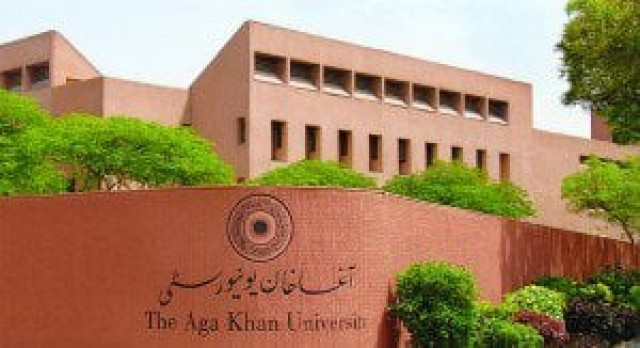3D bioprinting trials begin for medical breakthroughs
Cutting-edge technology focuses on producing organs to treat complex diseases

Groundbreaking experiments in 3D bioprinting are currently underway at Aga Khan University Hospital (AKUH). The hospital aims to pioneer 3D bioprinting in Pakistan, with the initial focus on producing organs for drug effectiveness research and treatment of complex diseases, including cancer.
3D bioprinting is a technology where bioinks, mixed with living cells, are printed in 3D to construct natural tissue-like three-dimensional structures. This innovative approach also holds promise for healing burns without the need for traditional stitches, revealed Dr Azhar Hussain, Director of Labs for Biological and Biomedical Sciences at AKUH in an exclusive chat with The Express Tribune on Thursday.
He attributed much of the success to the complete bio-printing system installed in 2020 - a first for any university in the country.
The long-term objective is to develop fully functional human organs using 3D bioprinting within the next few years, said Dr Hussain.
“Currently, the technology is being employed to explore various treatment methods and gain insights into different diseases,” he added. “Unlike the past, where cells could only be grown in a single layer, the 3D bioprinter allows for the creation of threedimensional cell models, significantly enhancing research capabilities.”
This cutting-edge technology is expected to play a crucial role in evaluating the effectiveness of different drugs, Dr Hussain said.
“The human body’s composition, formed by cells from both parents, relies on totipotent cells that have the potential to form three body layers - ectoderm, mesoderm, and endoderm. While these stem cells are most active during fetal development, they continue to be valuable for treatment throughout life.”
Stem cells have contributed to various inventions, including the Crispr Cas Nine Gene Editing system, a global innovation in addressing genetic diseases. AKUH’s Center for Regenerative Medicine and Stem Cell Research is at the forefront of using this system.
Dr Sharin Rajput, Assistant Professor at the center, explained that the bioprinter, akin to a conventional printer, distinguishes itself by containing biological material, including bioink and cells.
“AKUH is pursuing the future of medical treatments by working towards using genetic scissors to edit out genetic defects and replace them with correct genes,” Dr Rajput said and anticipated that this approach would revolutionise the treatment of diseases yet to be discovered, marking a significant step forward in medical science.



















COMMENTS
Comments are moderated and generally will be posted if they are on-topic and not abusive.
For more information, please see our Comments FAQ